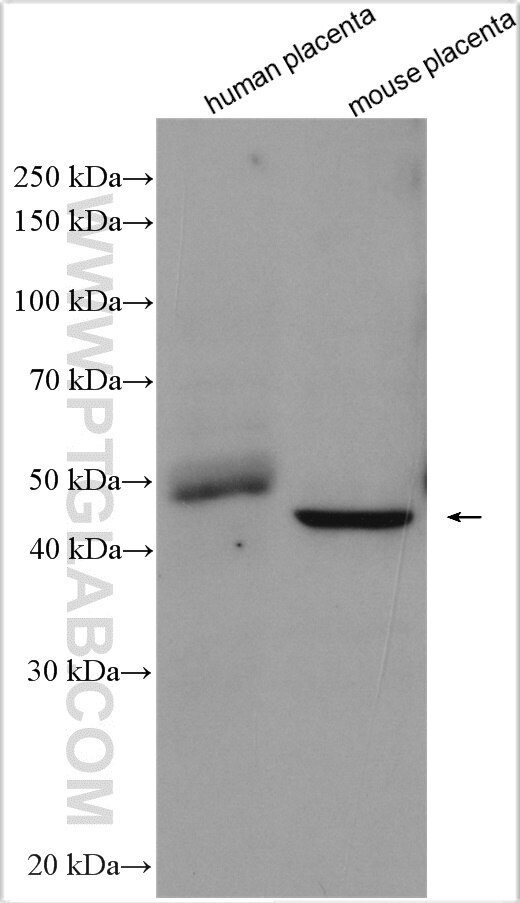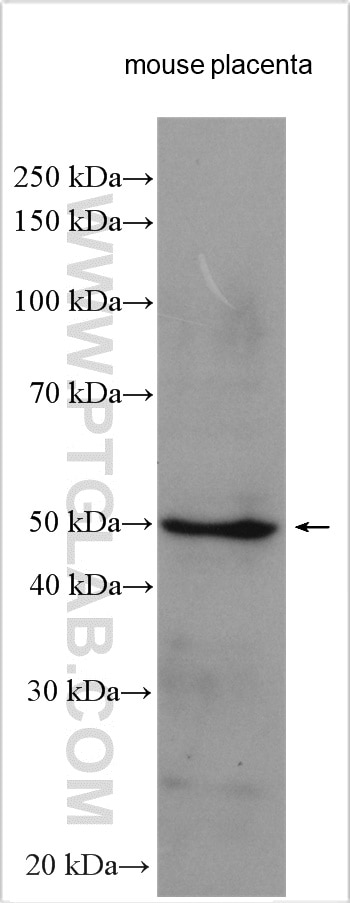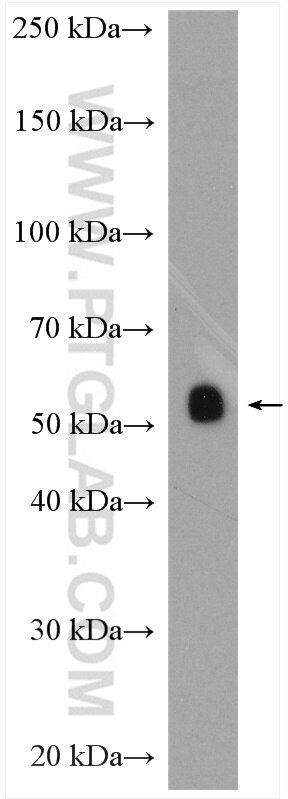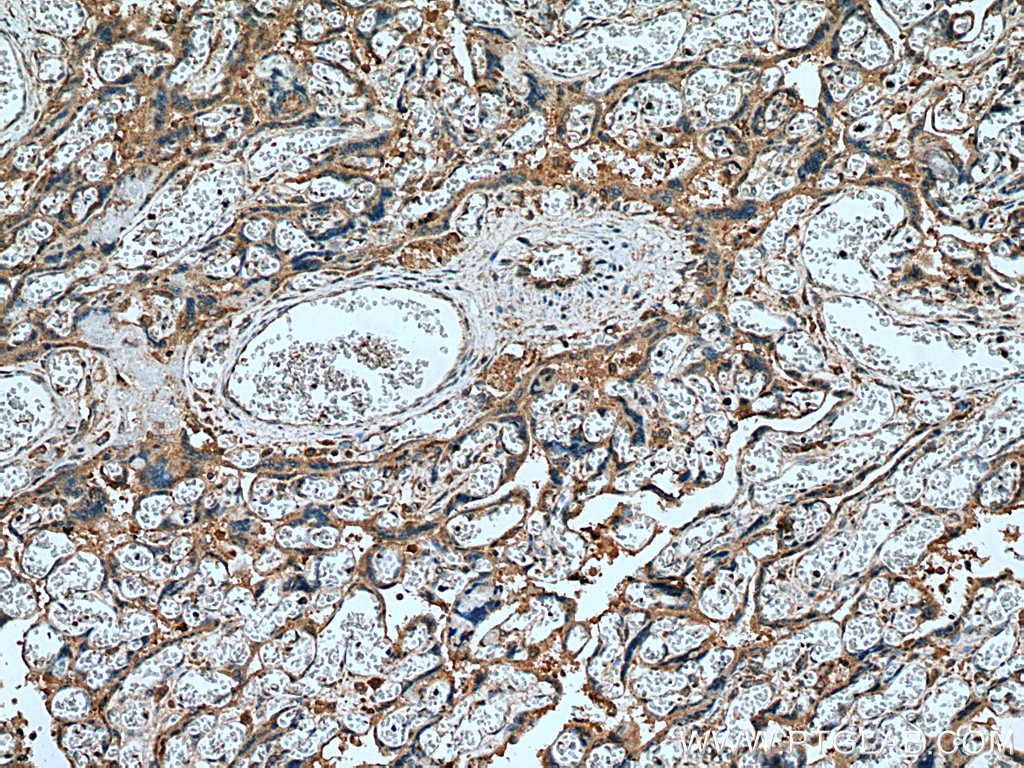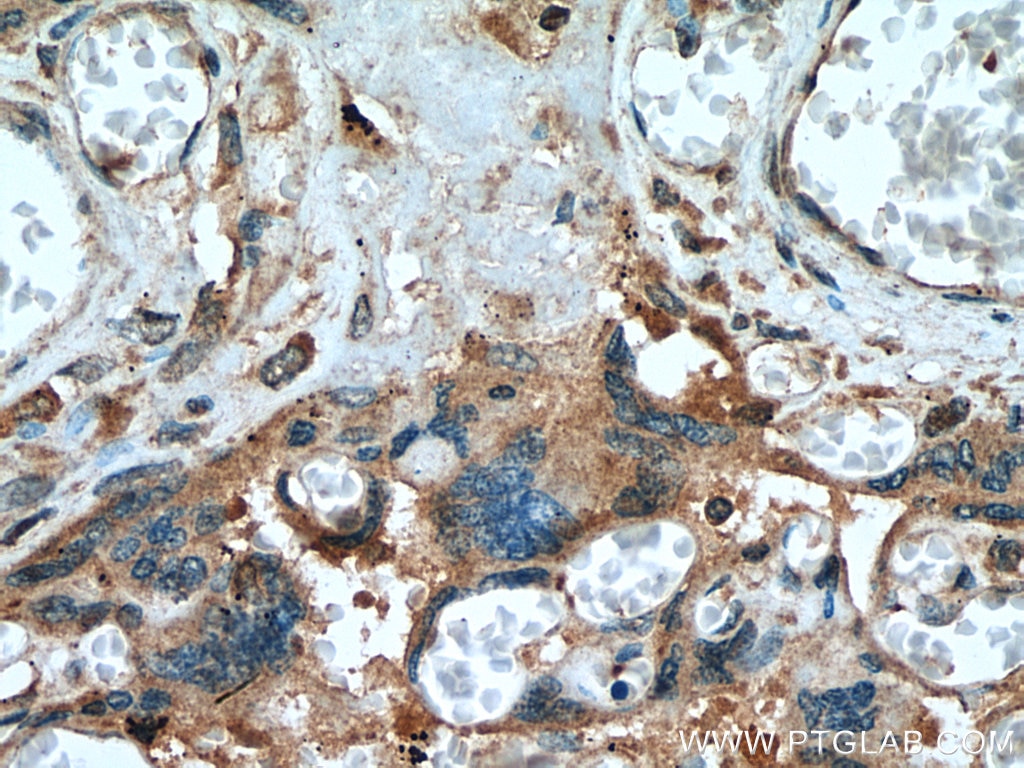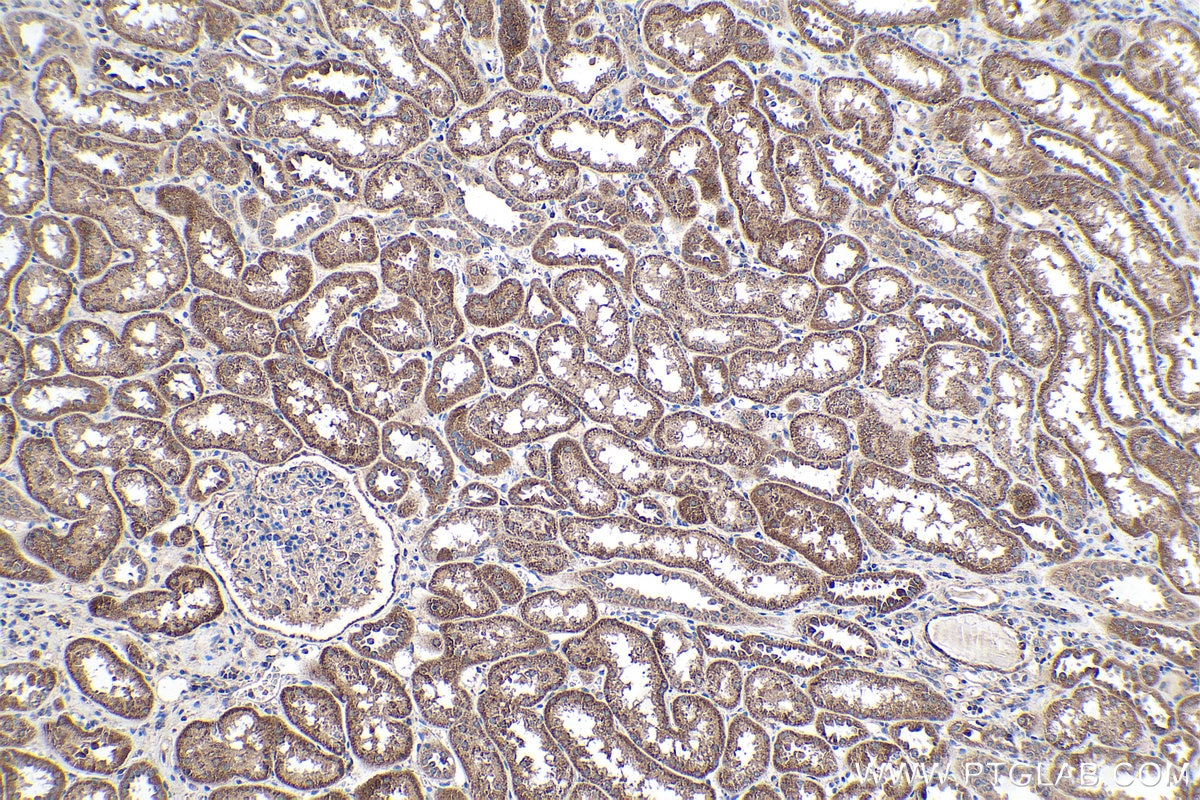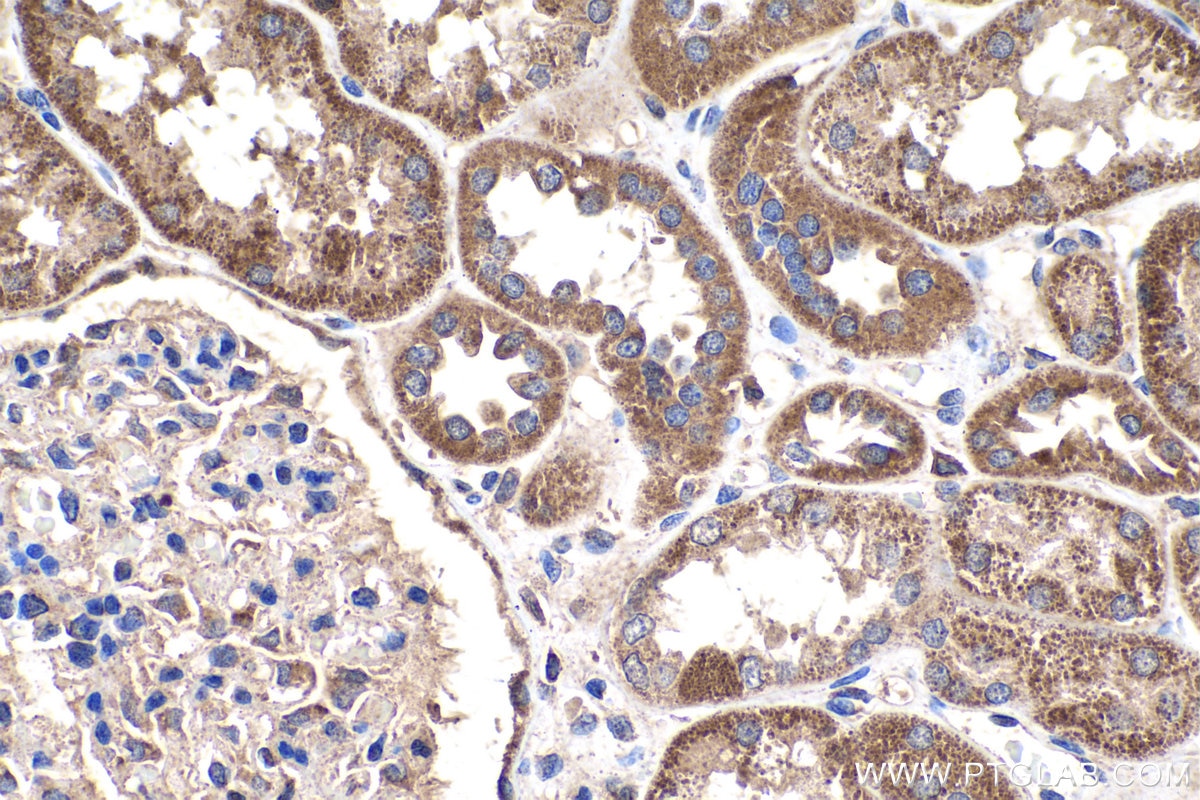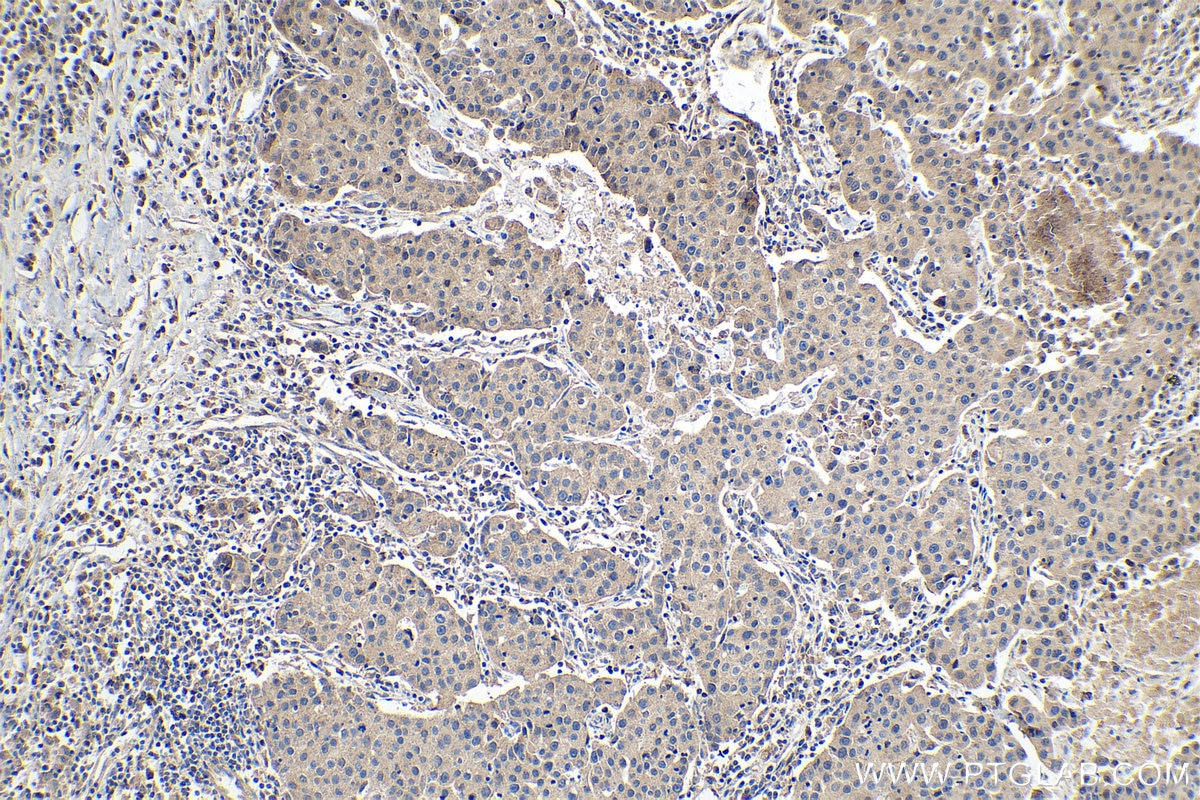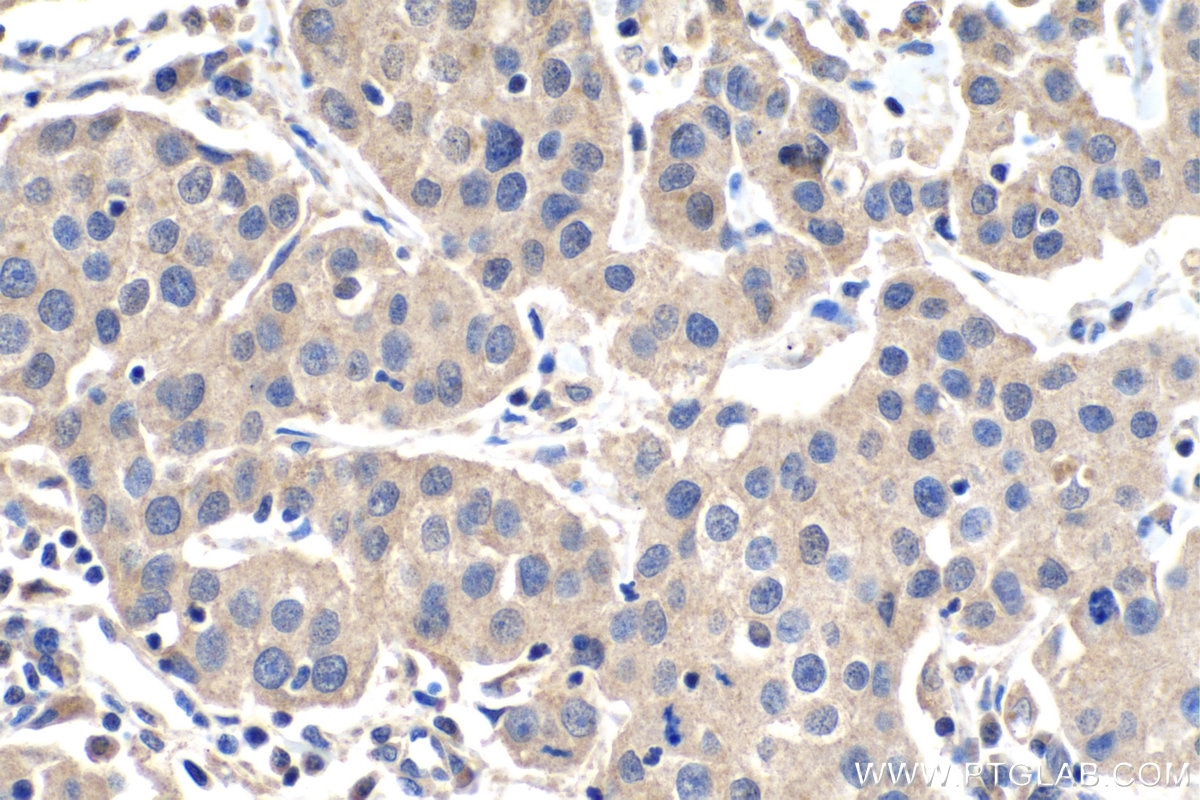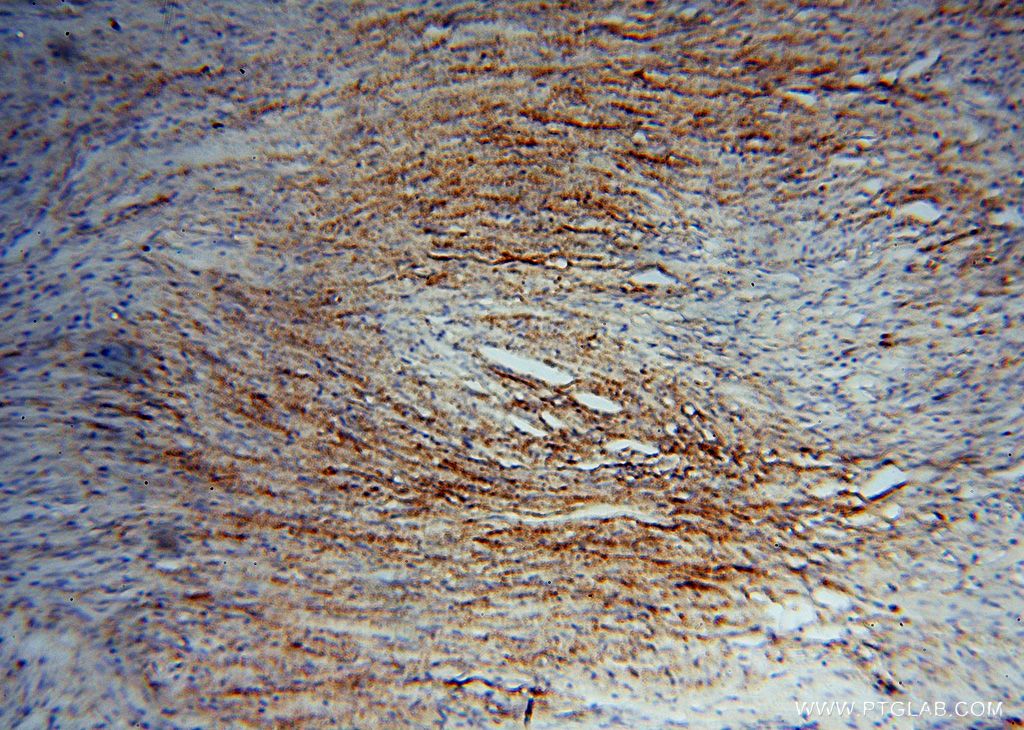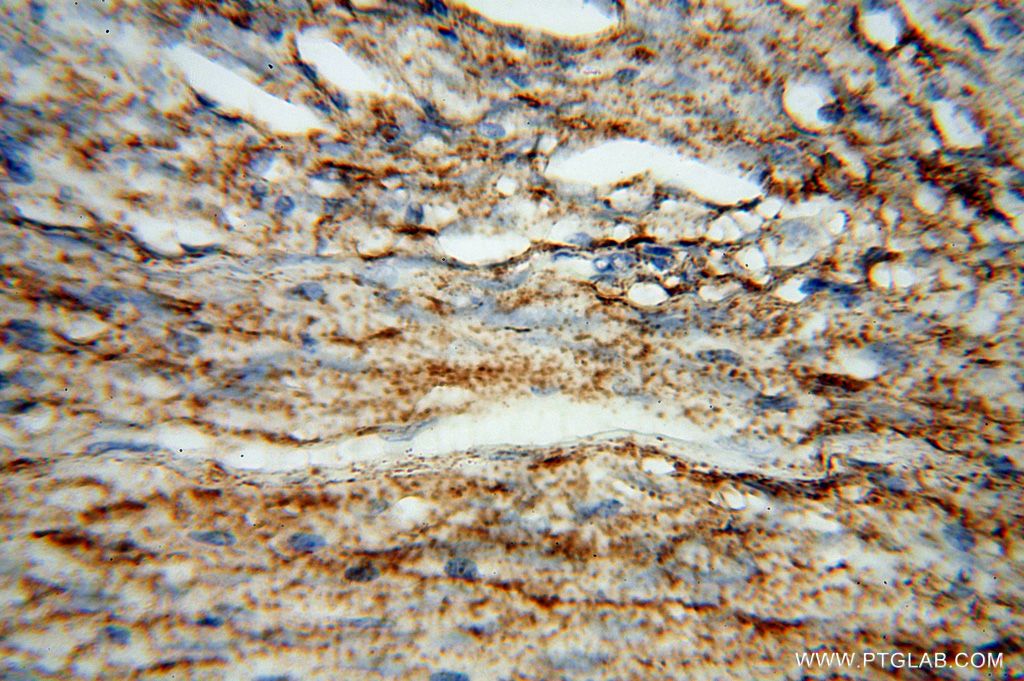- Phare
- Validé par KD/KO
Anticorps Polyclonal de lapin anti-Placental Growth Factor
Placental Growth Factor Polyclonal Antibody for IHC, ELISA
Hôte / Isotype
Lapin / IgG
Réactivité testée
Humain, souris et plus (1)
Applications
IF, IHC, ELISA
Conjugaison
Non conjugué
N° de cat : 10642-1-AP
Synonymes
Galerie de données de validation
Applications testées
| Résultats positifs en WB | tissu placentaire humain, tissu placentaire de souris |
| Résultats positifs en IHC | tissu placentaire humain, tissu de cancer du sein humain, tissu de méningiome humain, tissu rénal humain il est suggéré de démasquer l'antigène avec un tampon de TE buffer pH 9.0; (*) À défaut, 'le démasquage de l'antigène peut être 'effectué avec un tampon citrate pH 6,0. |
Dilution recommandée
| Application | Dilution |
|---|---|
| Western Blot (WB) | WB : 1:500-1:1000 |
| Immunohistochimie (IHC) | IHC : 1:200-1:800 |
| It is recommended that this reagent should be titrated in each testing system to obtain optimal results. | |
| Sample-dependent, check data in validation data gallery | |
Applications publiées
| KD/KO | See 3 publications below |
| IHC | See 8 publications below |
| IF | See 9 publications below |
Informations sur le produit
10642-1-AP cible Placental Growth Factor dans les applications de IF, IHC, ELISA et montre une réactivité avec des échantillons Humain, souris
| Réactivité | Humain, souris |
| Réactivité citée | rat, Humain, souris |
| Hôte / Isotype | Lapin / IgG |
| Clonalité | Polyclonal |
| Type | Anticorps |
| Immunogène | Placental Growth Factor Protéine recombinante Ag0969 |
| Nom complet | placental growth factor |
| Masse moléculaire calculée | 25 kDa |
| Poids moléculaire observé | 50 kDa |
| Numéro d’acquisition GenBank | BC007789 |
| Symbole du gène | PGF |
| Identification du gène (NCBI) | 5228 |
| Conjugaison | Non conjugué |
| Forme | Liquide |
| Méthode de purification | Purification par affinité contre l'antigène |
| Tampon de stockage | PBS avec azoture de sodium à 0,02 % et glycérol à 50 % pH 7,3 |
| Conditions de stockage | Stocker à -20°C. Stable pendant un an après l'expédition. L'aliquotage n'est pas nécessaire pour le stockage à -20oC Les 20ul contiennent 0,1% de BSA. |
Informations générales
Placenta growth factor (PLGF) is a homodimeric glycoprotein, 46-50 kDa in size, belonging to the vascular endothelial growth factor (VEGF) sub-family. It plays an important role in pathological VEGF-driven angiogenesis. PLGF is expressed not only in placental cells but also in colon and mammary carcinomas. It acts as a primary inflammatory instigator of atherosclerotic plaque instability and thus may be useful as a risk-predicting biomarker in patients with acute coronary syndromes (ACS).
Protocole
| Product Specific Protocols | |
|---|---|
| WB protocol for Placental Growth Factor antibody 10642-1-AP | Download protocol |
| IHC protocol for Placental Growth Factor antibody 10642-1-AP | Download protocol |
| Standard Protocols | |
|---|---|
| Click here to view our Standard Protocols |
Publications
| Species | Application | Title |
|---|---|---|
Brain. Global gene expression profiling of somatic motor neuron populations with different vulnerability identify molecules and pathways of degeneration and protection. | ||
Biomaterials Combination antitumor immunotherapy with VEGF and PIGF siRNA via systemic delivery of multi-functionalized nanoparticles to tumor-associated macrophages and breast cancer cells.
| ||
Biomed Pharmacother HIF-1α inhibitor YC-1 suppresses triple-negative breast cancer growth and angiogenesis by targeting PlGF/VEGFR1-induced macrophage polarization | ||
Cancers (Basel) Occurrence of Fibrotic Tumor Vessels in Grade I Meningiomas Is Strongly Associated with Vessel Density, Expression of VEGF, PlGF, IGFBP-3 and Tumor Recurrence. | ||
Diabetes Obes Metab Polarized macrophages promote gestational beta cell growth through extracellular signal-regulated kinase 5 signalling. | ||
Int J Mol Sci Alzheimer's Amyloid β Peptide Induces Angiogenesis in an Alzheimer's Disease Model Mouse through Placental Growth Factor and Angiopoietin 2 Expressions |
